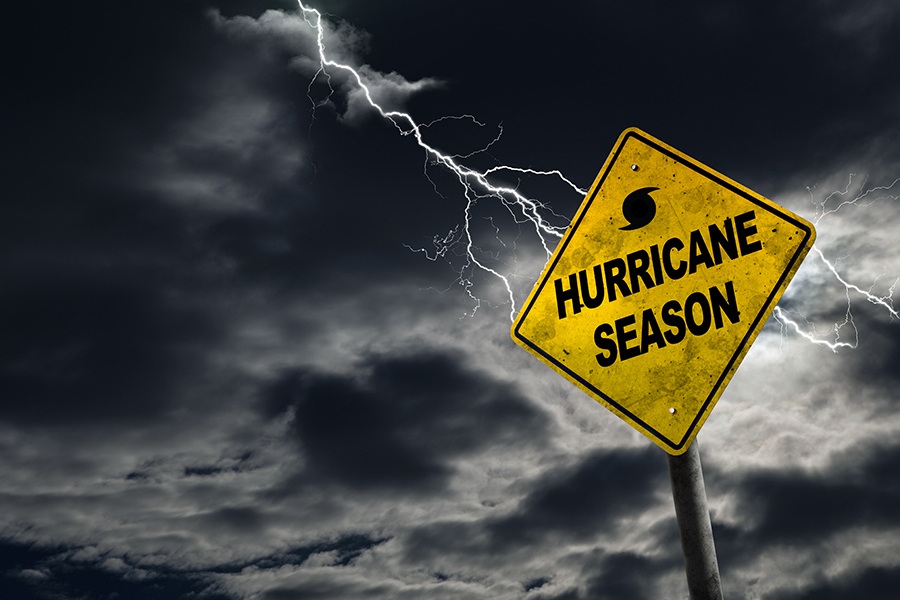With hurricane season bearing down on the First Coast it’s time to get your house ready for hurricane season. Luckily, our area of Florida has not seen direct hits from a major hurricane in a long while. But, it is just a matter of time before our luck runs out and a hurricane does hit us. There are a number of preventative items you can do prior to a hurricane coming to get your home ready, as well as things to do right before the hurricane hits. Let’s talk about a number of easy items anyone can do to be hurricane-ready.
- Check your insurance coverage – Be sure to do this well before a hurricane is bearing down on your area. It is a good idea to review your insurance coverage annually to make you have the coverage you really need. A lot of times insurance companies will change their policies or coverage throughout the year, and your notice might get lost in your mail shuffle. So make sure you have the coverage you want. Remember that your insurance company will not change your coverage when a hurricane is anywhere near Florida. So this has to be done well in advance.
- Have a hurricane plan – Make sure you have a family plan if you plan to stay or go in case of a hurricane. Have emergency contacts notified? Set up an evacuation route. And know what to do ahead of time so you are not panicking when the hurricane comes. And don’t forget about your pets and livestock!
- Do you have a power source? – When the power goes out due to high winds and down lines, will you have power? Don’t forget it can days or weeks sometimes for power to be fully restored after a big storm. Some homes may have built-in generators. Others will need a power source if you plan to ride out the storm at home. Gas generators are great and very powerful, many can power a refrigerator or other large appliances. Though the generator needs to stay outside the house since the fumes are toxic. Another option is smaller portable power stations. Many of them can be charged with a wall outlet prior to the storm coming. And, a lot of them can have an optional solar panel attached to power up after the storm has passed over. The limitations on these smaller units are the run time and what they can power. Small household appliances, phones, and computers are no problem. Some can even charge a small refrigerator. But, they are limited in their scope. Find the right choice for your family.
- Have plywood ready – If the storm looks like it will be a direct hit you may want plywood to board your windows and doors. By these ahead of time. Cut them to size. Label which opening they go to, and store in your garage. This will save you the hysteria of going to a home improvement store last minute. Another option is to install storm shutters. There are a number of local companies that do this.
- Is your septic system pumped? – If you have a septic system you may want to have it pumped regularly. If you live in an area with a higher water table the septic or drain field could overflow with the large amount of water brought by the hurricane.
- Clean out gutters and drains – Before the storm hits make sure your gutters are clean or any other drains around your property are free of debris to prevent backup.
- Clean up the yard! – Small items can be picked up by the winds and thrown around. You don’t want these flying projectiles just sitting in the yard. Move them to the garage or inside the house to be safe.
- If you plan to leave town, turn off the water – If the hurricane looks like a direct hit you may want to evacuate. Before you leave turn the water off at the main valve to the house. This will prevent flooding in the home in case of a pipe break.
I hope this quick list can help you and your family get your home prepared for a hurricane on the First Coast!

